Multimedia Archive 2009
Stories from the School—
in 02139 and around the globe.
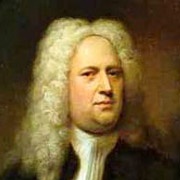
How Handel Orchestrated a Financial Comeback:
PBS Newshour Feature with Professor Emeritus Ellen Harris
When 18th century composer George Frideric Handel wrote his timeless "Messiah" oratorio, he not only penned a classic holiday composition, he also established a foundation for a new business approach to opera. Paul Solman reports. Features Ellen Harris, MIT Professor of Music Emeritus Watch
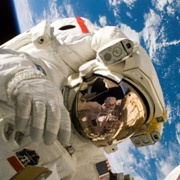
The Future of Human Spaceflight: The Augustine Report and its Implications
In June 2009, NASA created the Review of U.S. Human Space Flight Plans Committee and charged it with conducting "an independent review of ongoing U.S. human space flight plans and programs, as well as alternatives, to ensure the Nation is pursuing the best trajectory for the future of human space flight – one that is safe, innovative, affordable, and sustainable." Watch
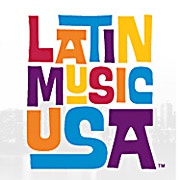
Wayne Marshall featured on PBS Series: Latin Music USA
Mellon Postdoctoral Fellow, Wayne Marshall, appeared in a PBS four-part series on Latin Music in the USA. Click below to watch the series and a bonus clip of Wayne on the connection between Panama and Jamaica. More
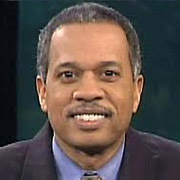
Race, Politics, and American Media
The collapse of print and other traditional news and the rise of celebrity culture have contributed to the sharp decline of in-depth stories involving race and society, say these speakers in an illuminating discussion replete with personal anecdotes. Juan Williams, News Analyst for NPR, Political Analyst, Fox News Channel; J. Philip Thompson, MIT Associate Professor of Urban Politics, Department of Urban Studies and Planning; David Thorburn, MIT Professor of Literature and Director of the MIT Communications Forum. Watch
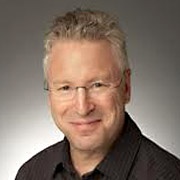
Tom Levenson on Newton and the Counterfeiter
Who knew that one of the world's greatest scientists also worked as a gumshoe on London’s mean streets, or that this same absent-minded professor helped England fix its monetary policy from an office in the Tower of London?Levenson brings all sorts of surprises to light in his sleuthing of a little known but significant episode in British history involving Sir Isaac Newton. Watch
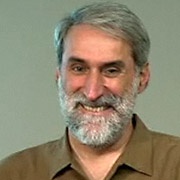
Nocera speaks to Knight Science Fellows on personalized energy
Daniel Nocera, The Henry Dreyfus Professor of Energy and Professor of Chemistry, is swimming upstream in the energy research world. While many scientists work on how to scale up wind, geothermal, or biomass systems, Nocera is focusing on “personalized” energy units that can be manufactured, distributed and installed economically. Watch
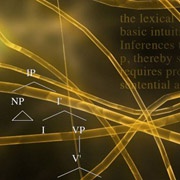
A Conversation between Jay Keyser and Noam Chomsky
Samuel Jay Keyser, Editor-in-Chief of Linguistic Inquiry, has shared a campus with Noam Chomasky for 40+ years via the School's renowned Department of Linguistics and Philosophy. The two colleagues recently sat down to discuss ideas on language evolution and the human capacity for understanding the universe. Listen to the conversation
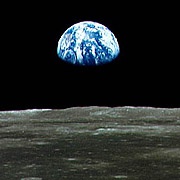
Exploring the Apollo Legacy
What is the legacy of the Apollo program, and how can it help us meet the challenges of our own time? This short, beautiful film, produced by the MIT AMPS team, kicked off MIT’s "Giant Leaps" event, to commemorate the 40th anniversary of the first lunar landing, and envision the future of spaceflight. Watch

On the cutting edge: The Arts at MIT
"The arts at MIT, like science and engineering at MIT, are on the cutting edge of their disciplines, they are serving the students—and in the way they are serving the students, ultimately, they are going to be serving the entire society." — Alan Brody, Playwright and Professor of Theater Arts Take a look!

Global Media
Just as digital technology has expanded the means of producing media, so has it increased the geographic range new media may travel. Locally generated content can zip around the world in a heartbeat. Watch
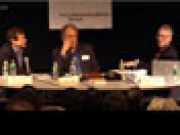
Narratives of Science
Robert Kanigel poses the central question of this panel: “The storytelling express is leaving the station. Do we want to jump aboard, or under some circumstances, stay where we are?” Science writing has matured as a discipline and genre, and for many writers, this means telling a story with what Kanigel describes as “a narrative arc: a cannon propelling you through a text, because of readers’ eagerness to know what’s happening next.” Watch

Starr Forum on U.S.-Iran Relations
This panel discussion at the Starr Forum of May 2009 is a clear guide to current U.S.-Iranian relations, presented by moderator Barry Posen (Director of the School's Security Studies Program), and panelists Suzanne DiMaggio, Jim Walsh, and Stephen Heintz. Under the Obama administration, the U.S. is moving toward a better relationship with Iran; panelists explain that achieving real diplomacy will paradoxically require both patience and a sense of urgency. Watch

STS Event - Engineering for the Ecological Age: Lessons from History
Structural engineer John Ochsendorf fell in love with archaeology during college at Cornell where his senior thesis involved a 600-year-old Incan suspension bridge made entirely out of grass. In the course of his research, Ochsendorf discovered that historical structures hold important lessons for modern building technology. Watch
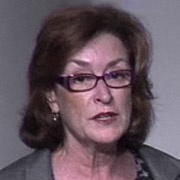
The Future of Science Journalism
President Susan Hockfield states that science journalism “is absolutely indispensable.” As we confront global warming and health pandemics, science reporting must be sustained, Hockfield says, “in its rightful place, at the top of the profession and in the thick of the national conversation.” Dismal economic times are a challenge to this aspiration, as journalists on the panel attest. Watch

Institutional Perspectives on Storage
European archivists grapple with the legal obligations, civic responsibilities and future prospects of their collections, which, thanks to the Internet and other new technologies, are increasingly awash in image and sound. As William Urichhio notes, “tradition-bound institutions know what we should be gathering: feature films, books, newspapers, political documents, but it’s much harder to know what to do with things like social media…say, networks of interactions.” Different organizations are evolving diverse strategies. Watch

Mind, Hand, World
The MIT Center for International Studies
The MIT Center for International Studies undertakes research, teaching, international education, and public and policy engagement on a broad range of global issues. Major programs include: MISTI, which sends 300 students annually to internships in labs in 10 countries; the Security Studies Program; the Program on Emerging Technologies, which researches the effects of globalization; the Jerusalem 2050 project; and the Persian Gulf Initiative, which focuses on Iran and Iraq. Watch
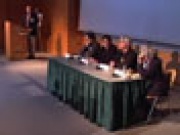
Archives and History
Moderator Peter Walsh poses a series of questions to the archivists and historians on this panel, who reflect the anxiety and exhilaration of a digital age that is constantly transforming their disciplines. Watch
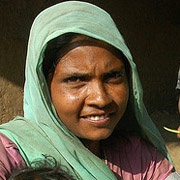
The Name of the Disease
J-PAL's transformative work in India
This preview of a 2009 documentary presents J-PAL’s investigation of health problems of India's rural poor, and the programs J-PAL and local NGO partners are creating to bring relief. Watch
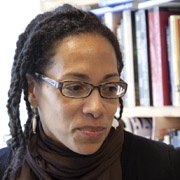
Doing Anthropology
Cultural anthropology is a social science that explores how people understand, and act in, the world. But what, exactly, do Cultural Anthropologists do? How do they approach their research? In this short film, three members of the School's Anthropology section, Stefan Helmreich, Erica James, and Heather Paxson, talk about their current fieldwork. Watch
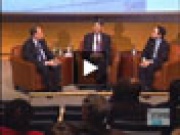
Paint it Black: On the Current Financial Crisis
“Paint it Black” is all about red—the mountain of debt challenging the viability of all the nation’s institutions. James Poterba moderates this discussion of the current economic crisis, and the possible impact of governmental remedies.
Watch
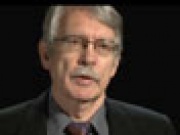
Institute Professor John Harbison on MIT Students
MIT Institute Professor of Music John Harbison sits down with MIT TechTV to discuss music studies at MIT, subjectivity, and the metamorphosis of MIT students over the years. Watch
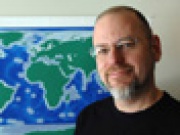
Stefan Helmreich on his book "Alien Ocean"
When MIT Professor of Anthropology Stefan Helmreich set out to examine the world of marine microbiologists for a new book, his research took an unexpected twist. Helmreich, who has been recognized for his innovative cultural anthropology work, had decided to study scientists who chase some of the world's smallest creatures in some of the world's most forbidding places. So he spent long hours interviewing microbial biologists. But during the years of Helmreich's research, the entire field shifted gears. Watch on YouTube
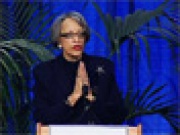
Yes We Must: Achieve Diversity through Leadership
Two "sisters"—both university chiefs—celebrate the victory of the first African-American U.S. President, but remind listeners that American institutions have not yet achieved the full measure of Martin Luther King, Jr.'s dream. Watch
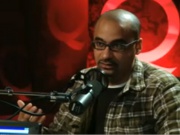
Junot Díaz on Q TV
Pulitzer Prize winning author and Professor of Writing, Junot Díaz, sits down with CBC Q TV host Jian Ghomeshi to discuss his book, "The Brief Wondrous Life of Oscar Wao." Watch
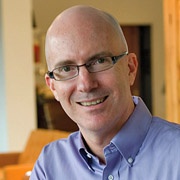
Professor Charles Stewart III on Race and the 2008 Election
Some political observers have declared that the election of the first black president signals a new era of post-racial politics in the United States—but the data show otherwise, say two MIT professors, Charles H. Stewart III and Stephen Ansolabehere. Watch